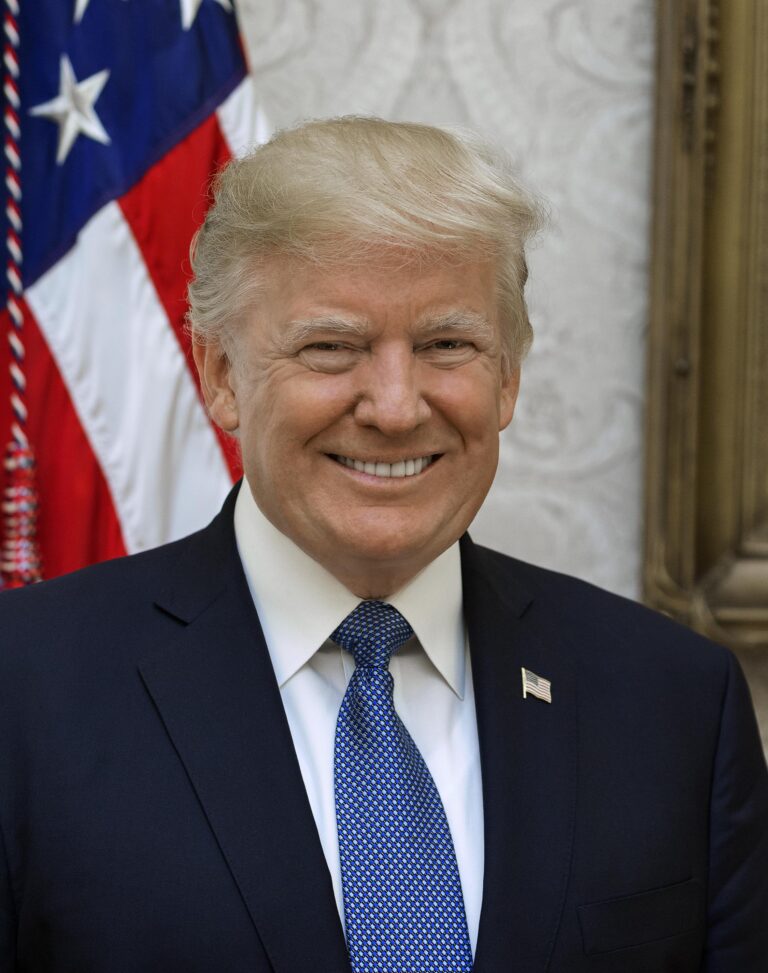Former U.S. President Donald Trump has linked the potential financial bailout of Argentina to the success of far-right politician Javier Milei’s party in the upcoming elections. In remarks reported by The Wall Street Journal, Trump emphasized that any U.S. involvement in supporting Argentina’s struggling economy would hinge on Milei’s ability to secure a governing majority. The statement underscores the growing international attention on Milei, whose economic policies and political rise have sparked both enthusiasm and controversy amid Argentina’s ongoing financial crisis.
Trump Links Argentina Bailout to Milei Party’s Electoral Success
Former U.S. President Donald Trump has publicly asserted that the future of Argentina’s financial rescue plan is closely tied to the upcoming elections, where the Milei party is gaining substantial momentum. Trump emphasized that without a victory for the Milei-led coalition, which champions free-market reforms and a crackdown on corruption, international lenders may hesitate to finalize bailout agreements. This linkage underscores a growing belief that political stability and reform-oriented governance are pivotal in unlocking crucial foreign aid for Argentina’s struggling economy.
Analysts observing the situation note several key factors tied to this evolving dynamic:
- Electoral influence: Milei’s surge could reshape the economic agenda, potentially accelerating market-friendly policies.
- Investor confidence: A Milei victory might reassure international creditors about Argentina’s commitment to fiscal discipline.
- Bailout conditions: Reform-minded platforms are likely prerequisites for concessions from global financial institutions.
| Factor | Impact on Bailout |
|---|---|
| Political Stability | Essential for lender trust |
| Milei’s Policies | Market reforms boost confidence |
| International Relations | Enhanced by pro-reform leadership |
Analysis of Milei’s Economic Policies and Their Impact on Argentina’s Financial Stability
Javier Milei’s economic framework proposes a radical overhaul of Argentina’s fiscal landscape, emphasizing deregulation, aggressive spending cuts, and a hardline stance on inflation through monetary tightening. His policies aim to sharply reduce the fiscal deficit by trimming public sector expenditures and privatizing several state-owned enterprises. Critics argue that while these measures may attract foreign investment and stabilize the peso, the social cost could be high, potentially exacerbating unemployment and poverty levels in the short term. Supporters, however, are optimistic that Milei’s adoption of libertarian economics will restore investor confidence, which has been eroded by years of volatile policies and rampant inflation.
Key aspects of Milei’s economic agenda include:
- Dismantling the central bank’s ability to finance government deficits
- Implementing a flat tax system to stimulate entrepreneurship
- Eliminating export taxes on agricultural products
- Privatizing inefficient state companies to improve competitiveness
| Policy Measure | Expected Financial Impact | Potential Risks |
|---|---|---|
| Spending Cuts | Reduce budget deficit by 4% | Social unrest, reduced public services |
| Privatization | Increase foreign investments by 15% | Job losses, market monopolization |
| Monetary Tightening | Lower inflation to 20% annually | Economic slowdown, higher interest rates |
Experts Advise Strategic Engagement with Milei to Secure International Support
As international stakeholders closely monitor Argentina’s political horizon, experts emphasize the importance of calculated diplomacy with Javier Milei’s political faction. Given Milei’s growing influence, maintaining open channels with his team could be pivotal to securing crucial foreign aid. Analysts warn that disregarding this emerging political force might result in missed opportunities, particularly as governments and financial institutions weigh their support based on anticipated stability and alignment with reformist agendas.
Political strategists suggest a multi-faceted approach to engagement, focusing on:
- Building trust through transparent dialogue and shared economic goals
- Assessing Milei’s policy frameworks to anticipate fiscal and structural reforms
- Aligning support mechanisms that incentivize sustainable growth without compromising sovereignty
| Key Areas | Strategic Actions | Expected Outcomes |
|---|---|---|
| Economic Policy | Engage in regular policy briefings | Enhanced confidence from international lenders |
| Political Stability | Monitor Milei’s coalition dynamics | Predictable investment environment |
| International Relations | Coordinate multilateral support programs | Broadened diplomatic backing |
The Conclusion
As the political landscape in Argentina remains uncertain ahead of the upcoming elections, former President Donald Trump’s comments underscore the potential international implications tied to the country’s leadership choices. With the possibility of an IMF bailout hanging in the balance, the outcome of the election-and the influence of Milei’s party-will be closely watched by both domestic and global stakeholders. The evolving situation continues to highlight the complex interplay between Argentina’s internal politics and its economic recovery efforts.




